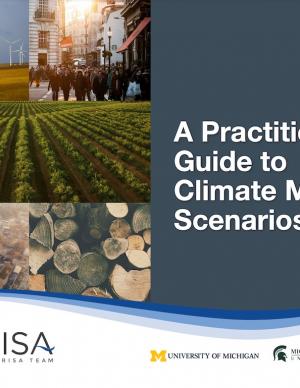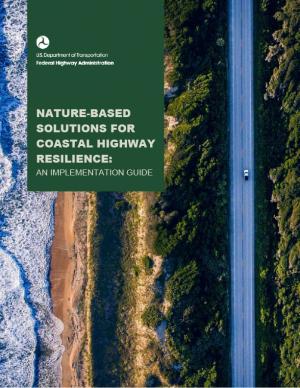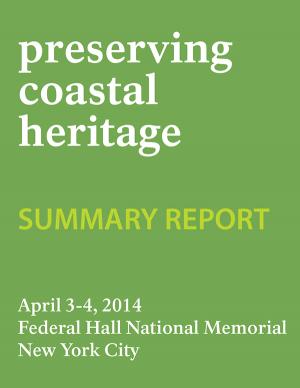Access a range of climate-related reports issued by government agencies and scientific organizations. Browse the reports listed below, or filter by scope, content, or focus in the boxes above. To expand your results, click the Clear Filters link.
This Guide is written for practitioners already using or wanting to use future climate information in their work, but who are not familiar with the underlying assumptions and choices surrounding climate data. Here, we introduce the climate model scenarios that are used to “drive” climate models forward in time. These scenarios are a combination of socioeconomic and climate forcing pathways. We summarize differences between these scenarios for the Great Lakes region to show users how their choice of model scenario affects future temperature and precipitation projections.
This guide is designed to help transportation practitioners understand how and where nature-based and hybrid solutions can be used to improve the resilience of coastal roads and bridges. It summarizes the potential flood-reduction benefits and co-benefits of these strategies, then follows the steps in the project delivery process, providing guidance on considering nature-based solutions in the planning process, conducting site assessments, key engineering and ecological design considerations, permitting approaches, construction considerations, and monitoring and maintenance strategies. The guide also includes appendices with site characterization tools, decision support for selecting nature-based solutions, suggested performance metrics, and links to additional tools and resources.
Green infrastructure can help to maximize the environmental, economic, and social benefits of parks. This guide from EPA encourages partnerships between park agencies and stormwater agencies to promote the use of green infrastructure on park lands to improve park lands and access to parks, better manage stormwater, increase community resiliency to shifting weather patterns, and provide funding to implement and maintain park enhancements that benefit the community. Using a stepwise approach for building relationships with potential partners, the guide includes information on how to identify and engage partners, build relationships, involve the community, leverage funding opportunities, and identify green infrastructure opportunities. It includes recommendations on the types of projects that are most likely to attract positive attention and funding and that provide a wide range of benefits. Included case studies from across the country illustrate approaches presented in the guide.
Find out how hometowns across the United States are building their resilience to climate change. Two women who studied climate change science and policy in graduate school took a three-month road trip to find out what climate change adaptation looks like in the United States. They visited more than 30 communities preparing for climate change and documented what they learned in blogs and through media reports. This report describes six big lessons from the ongoing adaptation work they saw across the country.
This report outlines 100 recommendations to help improve federal programs and their ability to prepare for climate change, drawing from a series of workshops with leading federal, state, and local officials and building upon lessons learned post-disaster in New Orleans (following Hurricane Katrina), New York (following Hurricane Sandy), and Vermont (after Hurricane Irene). The report identifies more than 30 federal programs, initiatives, and laws that can be used to prepare for extreme events such as storms, floods, and heat waves as well as rising seas. This report informed the White House's State, Local, and Tribal Leaders Task Force on Climate Preparedness and Resilience.
In April 2014, the National Park Service (NPS) convened a select group of leaders in the fields of planning, architecture, landscape architecture, historic preservation, archeology, science, and park and cultural resource management to participate in a planning session entitled Preserving Coastal Heritage. This summary report provides the recommendations and feedback that emerged over the course of the two-day work session, along with highlights from the presentations and remarks. Case studies include four sites in New York and New Jersey. The Preserving Coastal Heritage work session was part of an NPS effort to develop a cultural resources climate change response strategy.









